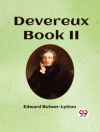Thomas Hardy’s ‘Tess of the d’Urbervilles: A Pure Woman’ is a poignant exploration of tragedy, social criticism, and the complexities of human relationships set in Victorian England. The novel employs a naturalistic style, rich in vivid imagery and emotional depth, effectively weaving Tess’s plight against the rigid social structures and moral expectations of her time. The narrative scrutinizes the idyllic façade of rural life while exposing the harsh realities faced by individuals, particularly women, whose lives are governed by societal norms and class disparities. Hardy’s intricate characterization, especially of Tess, portrays her as a victim of fate, thus inviting readers to ponder the existential dilemmas she encounters throughout her life. Thomas Hardy, a novelist and poet deeply influenced by the cultural upheavals of the 19th century, infuses his work with an acute awareness of the struggles against determinism and social convention. His own experiences in rural England, along with a profound connection to the landscapes he described, shaped his portrayal of human suffering and resilience. Hardy’s concern for women’s rights and critiques of industrialization further illuminate the motivations behind creating Tess, who embodies both purity and the harsh realities of society. I wholeheartedly recommend ‘Tess of the d’Urbervilles’ for readers seeking a rich, introspective literary experience that resonates with contemporary issues of gender, class, and morality. Hardy’s masterful prose ensures that Tess’s story remains timeless, compelling us to reflect on the nuanced interplay between fate and free will.
About the author
Thomas Hardy (1840–1928) was an English novelist and poet, who is widely regarded as one of the seminal writers of the Victorian era. His work is characterized by a deep psychological insight, a keen observation of social strata, and a profound pessimism about human nature and the fate of humanity. Hardy’s rural upbringing in Dorset provided the backdrop for much of his fiction, earning him the reputation of a regional novelist, while his sharp critique of social mores spoke to a universally human experience. ‘Tess of the d’Urbervilles: A Pure Woman’ (1891), one of his most famous novels, is a poignant exploration of issues such as societal hypocrisy, the inevitability of fate, and the struggles of individuals against an indifferent universe. Hardy’s Tess is a landmark character in English literature, a woman whose purity and moral integrity are at odds with the judgement of the society in which she lives. This novel, alongside others like ‘The Mayor of Casterbridge’ (1886) and ‘Jude the Obscure’ (1895), helped cement Hardy’s literary legacy. His novels and poetry—marked by a use of irony, naturalistic elements, and classical tragic structure—continue to be celebrated and analysed for their rich language, complex characters, and their exploration of the human condition.












